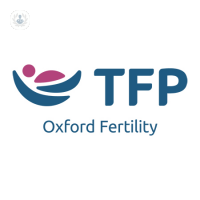What is premature menopause?
Premature menopause refers to when a woman begins menopause earlier than the age of 40 (as opposed to “early menopause”, which is the onset of menopause between the ages of 40 and 45; menopause usually happens in women aged 45-55).
Symptoms of premature menopause
The symptoms of premature menopause are generally the same as with normal menopause; the key difference is that the symptoms begin to manifest before the age of 40. The principal symptom is that the woman’speriods stop. Preceding the menopause is the perimenopause, in which the periods become less frequent. Other symptoms include:
- Vaginal dryness
- Hot flushes
- Night sweats
- Memory or concentration issues
- Weight gain
- Vaginal pain during intercourse
- Loss of libido
- Anxiety or low mood
Some women who experience premature menopause may be at higher risk of heart disease and osteoporosis, as they will have to live without oestrogen for longer.
Not being able to have children is another effect of menopause. This and/or the changes happening in the patient’s body can lead to psychological effects such as depression. If you have been experiencing extreme low moods, disinterest in things you once enjoyed, and other symptoms of depression for more than a few weeks, you should see your doctor or a specialist.
What are the causes of premature menopause?
Sometimes, there is no clear reason why a patient undergoes premature menopause, but often it can be attributed to certain factors:
- Genetics – women with a family history are more likely to experience premature menopause.
- Smoking
- Chemotherapy or pelvic radiation treatments for cancer
- Surgery to remove the ovaries
- Hysterectomy (removal of the uterus)
- Autoimmune diseases
- HIV/AIDS
- Chronic fatigue syndrome
- Missing chromosomes
Treatments for premature menopause
Premature menopause is usually treated much the same way as menopause that begins at the normal time – eitherhormone replacement therapy (HRT) or the combined contraceptive pill. Hormonal replacement treatments may not be suitable for ex-cancer patients.
The doctor will advise the patient on which treatment is best for them, and may recommend lifestyle changes that can help with the symptoms.
Which type of specialist treats premature menopause?
Gynaecologists, genitourinary specialists and endocrinologists all treat premature menopause.
Menopausia prematura
What is premature menopause?
Premature menopause refers to when a woman begins menopause earlier than the age of 40 (as opposed to “early menopause”, which is the onset of menopause between the ages of 40 and 45; menopause usually happens in women aged 45-55).
Symptoms of premature menopause
The symptoms of premature menopause are generally the same as with normal menopause; the key difference is that the symptoms begin to manifest before the age of 40. The principal symptom is that the woman’speriods stop. Preceding the menopause is the perimenopause, in which the periods become less frequent. Other symptoms include:
- Vaginal dryness
- Hot flushes
- Night sweats
- Memory or concentration issues
- Weight gain
- Vaginal pain during intercourse
- Loss of libido
- Anxiety or low mood
Some women who experience premature menopause may be at higher risk of heart disease and osteoporosis, as they will have to live without oestrogen for longer.
Not being able to have children is another effect of menopause. This and/or the changes happening in the patient’s body can lead to psychological effects such as depression. If you have been experiencing extreme low moods, disinterest in things you once enjoyed, and other symptoms of depression for more than a few weeks, you should see your doctor or a specialist.
What are the causes of premature menopause?
Sometimes, there is no clear reason why a patient undergoes premature menopause, but often it can be attributed to certain factors:
- Genetics – women with a family history are more likely to experience premature menopause.
- Smoking
- Chemotherapy or pelvic radiation treatments for cancer
- Surgery to remove the ovaries
- Hysterectomy (removal of the uterus)
- Autoimmune diseases
- HIV/AIDS
- Chronic fatigue syndrome
- Missing chromosomes
Treatments for premature menopause
Premature menopause is usually treated much the same way as menopause that begins at the normal time – eitherhormone replacement therapy (HRT) or the combined contraceptive pill. Hormonal replacement treatments may not be suitable for ex-cancer patients.
The doctor will advise the patient on which treatment is best for them, and may recommend lifestyle changes that can help with the symptoms.
Which type of specialist treats premature menopause?
Gynaecologists, genitourinary specialists and endocrinologists all treat premature menopause.


Coping with premature menopause
Por Dr Ashlesha Dhairyawan
2024-11-21
Premature menopause, also known as Premature ovarian insufficiency (POI), is a condition that affects women under the age of 40, causing cessation of menstruation and a decline in reproductive hormones earlier than expected. This phenomenon, while relatively uncommon, presents significant physical, emotional, and psychological challenges for those experiencing it. In her latest online article, Dr Ashlesha Dhairyawan delves into the intricacies of premature menopause, exploring its causes, symptoms, impacts, and management strategies. Ver más


Expect the unexpected: An expert guide to the menopause
Por Mr Gidon Lieberman
2024-11-04
Leading consultant gynaecologist and fertility specialist Mr Gidon Lieberman gives an expert guide on what to expect from the menopause in this informative article. The esteemed specialist outlines the causes behing common menopausal symptoms and details the relationship between this period of change and weight gain. Ver más
Doctores expertos en Menopausia prematura
-
Dr Theodora Kalentzi
Médico de cabeceraExperto en:
- Perimenopausia
- Menopausia
- Salud de la mujer
- Terapia de reemplazo hormonal
- Menopausia prematura
-
Dr Ashlesha Dhairyawan
Médico de cabeceraExperto en:
- Menopausia
- Perimenopausia
- Insuficiencia ovárica prematura
- Salud de la mujer
- Terapia de reemplazo hormonal
- Menopausia prematura
-
Dr Inosha Bambaranda
Reproducción asistidaExperto en:
- Infertilidad
- Amenorrea
- Ovarios poliquísticos
- Menopausia prematura
- Pruebas de fertilidad
- Tratamiento de fertilidad
- Ver todos

TFP Oxford Fertility
TFP Oxford Fertility
Institute of Reproductive Sciences Oxford Business Park North, OX4 2HW
No existe teléfono en el centro.
Si haces uso de este teléfono facilitado por TOP DOCTORS nos autorizas al tratamiento de tu teléfono para fines estadísticos y comerciales. Para más información, lee nuestra Política de Privacidad
Top Doctors

Medical Prime
Medical Prime
First Floor, 65 London Wall, London
No existe teléfono en el centro.
Si haces uso de este teléfono facilitado por TOP DOCTORS nos autorizas al tratamiento de tu teléfono para fines estadísticos y comerciales. Para más información, lee nuestra Política de Privacidad
Top Doctors
-
TFP Oxford Fertility
Institute of Reproductive Sciences Oxford Business Park North, OX4 2HW, OxfordExperto en:
- Recuperación de esperma
- Congelación de óvulos
- Diagnóstico prenatal
- Ecografía
- Estudio genético
- Fecundación in vitro (FIV)
-
Medical Prime
First Floor, 65 London Wall, London, Central LondonExperto en:
- La salud de la mujer
- Menopausia
- Osteoporosis




